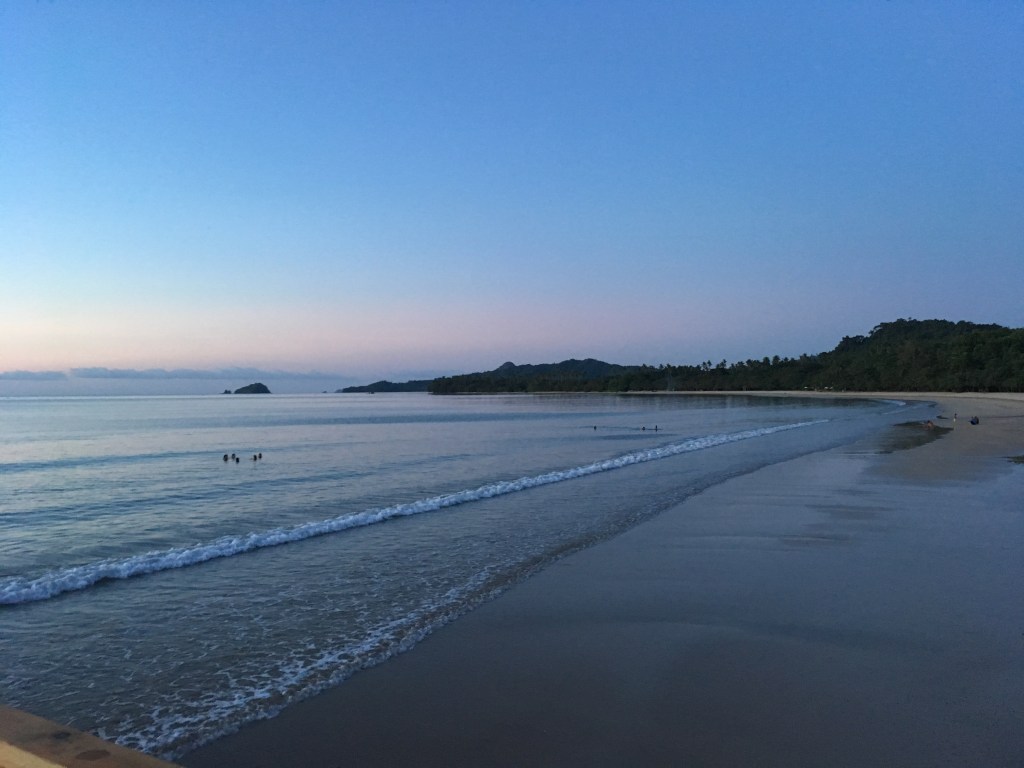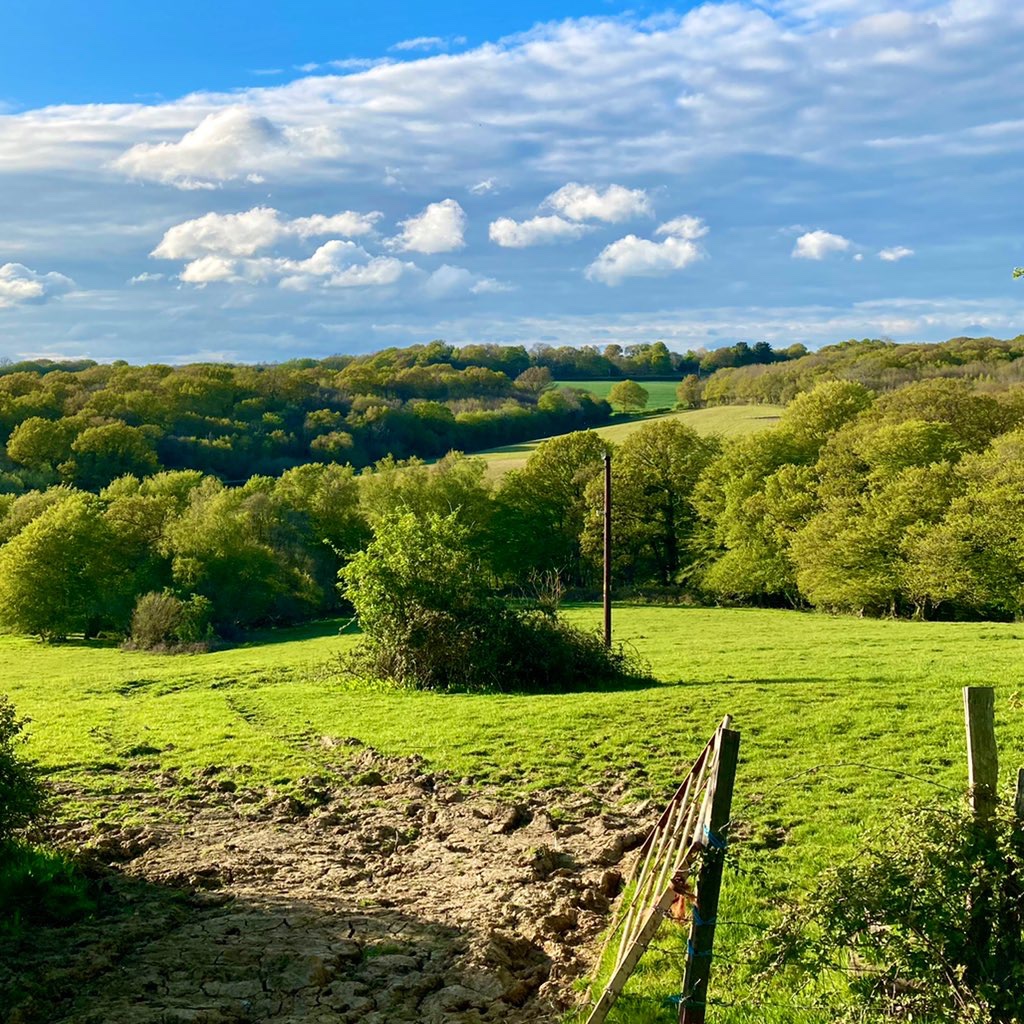Literary Ambition

This post first appeared on my Substack. You can receive future pieces in your inbox by subscribing to Scribble, Dribble.
The great ambition of journalists is to make the front page. Or it’s to be part of an investigation so powerful it becomes the news agenda. To win Pulitzer prizes, and cited by congressman. To write longform narrative features that are adapted into movies or expanded into books.
For writers, however, the great ambition is simultaneously simpler and infinitely more difficult.
Recently, I spent a happy afternoon wandering the shelves of the big Waterstones in Piccadilly after wanting a change from the Foyles on Charing Cross road.
Meandering among the tables, I happened upon a classic paperback that piqued my interest. It was Knut Hamsun’s Hunger, which was published in 1890.
A semi-autobiographical novel, of somewhat slim length, Hunger has a formidable reputation, its influence and legacy secure, and is considered a literary masterpiece.
The book I had actually come to check out, though, since I was in London anyway, was Caleb Azumah Nelson’s debut novel Open Water. Published just a few years ago, it has been acclaimed among contemporary literature. I spent the afternoon on a sofa reading passages from both books, making comparison even as Hunger had been a random pick-up. And I considered ambition from a literary perspective.
Hunger focuses on an aspiring writer’s movements around a Norwegian city, with spare descriptions, and much internal monologue on the hunger, both physical and psychological, experienced by the protagonist. It is heavy on narrative. Reading Hunger, in the 2020s, can seem a touch quaint since the internal monologue and lack of plot is no longer so novel, so new. But in the late nineteenth century it was considered special, with the force and depth of its psychological focus, and its central tension pulsing underneath.
While I read from this famous work, which helped Hamsun win the Nobel Prize in Literature in 1920, I was struck by something. There was a consistency and rhythm to its descriptions, which can often observe seemingly banal things. Some lady the unnamed narrator notices on the street; how he feels about a lamp or some other commonplace thing, like drinking tea, etc. Yet the weightiness of the descriptions, which are pungent and philosophical, steadily accretes and transforms the slender book into a truthful encounter with a mind that has thought intensely about life’s struggle amidst the deceptions of society.
There is great discipline to Hunger, an unhurried rhythm that you often find in pre-twentieth century prose. I guess in the late 1800s people didn’t have to contend with constant push notifications, although the masses were far likelier to experience the gnaw of starvation. It was instructive for me, as a writer, to understand that insightful writing has to be well paced, that potent insights have to be strung along, placed every so often, or even submerged within the narrative, rather than coming along too quickly, too cheaply.
To be a good writer is to…
You can read the rest of this post here.
Quitting Journalism To Become a Writer
The below is an excerpt from my Substack, with the first post publishing next week. You can receive the fuller version straight into your inbox by subscribing to Scribble, Dribble.
Do you remember why you got into something in the first place? Whether it was photography… painting… cooking… coding… composing music or sonnets, there was some kind of spark. It doesn’t need to be something traditionally creative, but could be another pursuit like engineering or entrepreneurship.
Do I remember why I got into writing?
When I was a teenager I discovered I was quite good at English. In my English lessons at school, I found my essays were getting decent marks. When it came to sixth form (A-levels before university in England), one of my choices to major in was English Language & Literature.
This gave me permission to read. And I begun to take advantage of my college library and to buy second-hand books. From the ages of 15 to 18 I read through novels in the fantasy genre as well as classics. This included the likes of Phillip Pullman’s His Dark Materials, The Lord of the Rings, The Great Gatsby, Lolita, Bill Bryson’s travel books, The Grapes of Wrath.
It was very enjoyable, having the time and the license to read. And when you’re that age, finishing one novel feels like a great achievement. You also get an uplift of imaginary credits, as if each book boosts your XP in wisdom, knowledge, and worldliness.
Then came The Big Decision … what to study at university? I considered Photography. I was close to applying, but realised that to succeed in this art, either creatively or commercially (ideally you’d want both) you need to be seriously committed. I thought about Creative Writing but back then I didn’t have the ability or imagination to write fiction. So I applied to do a degree in Journalism. My reasoning was pragmatic: journalism will allow me to write while offering a practical outlet for such writing that’ll earn me an income more stable than trying to write novels and suchlike.
So I completed the three years of my journalism degree and over its duration I got swept up into its tenets; its buzz and glamour. Journalism has its own creeds. It is known as The Fourth Estate, a key pillar of a flourishing liberal democracy, and harkens to its capability of holding the powerful to account. It writes “the first draft of history”. Journalists brought back reports that changed the world. The atrocities of the Khmer Rouge in Cambodia. Watergate. Images of starved children in Ethiopia spurring Live Aid, and so on. Famous names like Norman Mailer, Joan Didion and Hunter S Thompson; Gonzo and literary journalism. Added to this was the buzz of being published and the byline indicating you as the author of the article. I can still remember the high of being published in The Guardian newspaper near the end of my first year at university.
I was seduced by journalism…
Please subscribe to my Substack for the rest of this post.
I’m Launching a Substack: Scribble, Dribble

Hello, readers. It has been a while. But I’m here to tell you about some exciting plans.
There’s been quite significant change in the world and with me over these intervening months. And now it’s 2024 and I’d like to get back to sharing my thoughts and updates with you.
However, it won’t be happening so often on this blog.
Instead I will be moving my writing to my very own Substack. If you don’t know what that is, it is a newsletter subscription service. You simply drop your email address into the provider, and every time I write a new post you’ll receive it straight into your Inbox. Hurrah! Here’s the link.
Apparently, these newsletters get good engagement and they allow the writer the option to earn something from their writing. In the days ahead I’ll be publishing my first post, which is about pivoting away from journalism and returning to Why I Write, so look out for it. I’ll probably publish a truncated version on this blog, but to ensure you get the fuller version I recommend subscribing to my Substack! Here is the link (again).
In addition, I’ll be encouraging readers to sign up for the paid option. You’ll get full access to each and every post, as well as older posts as it grows, and the genuine experience delivered right to your inbox.
To get this full-fat luxury I humbly suggest signing up for a year’s subscription. It works out much less than paying monthly. Over mugs of tea catching rays of sun, or coffee breaks, or even cocktails overlooking the sea, you’ll be able to access an entire year’s worth of lovingly-crafted posts.
A note on the name: Scribble, Dribble. I just plucked it out of the air. I wanted something whimsical to balance against my more serious tendencies, and to remind myself to be more playful, lighter, and more observant. It’s my personal theme for this year in fact. Because to be a writer doesn’t mean you have to be A. WRITER. It can be enjoyable just to mess around with a sentence, with words. And if you’re not a writer, it can be fun to peek into another lifestyle or thoughts that at least try to be original.
Please join me over at my new thing: Scribble, Dribble!
A Writer’s Retreat in Greece (Part 1)
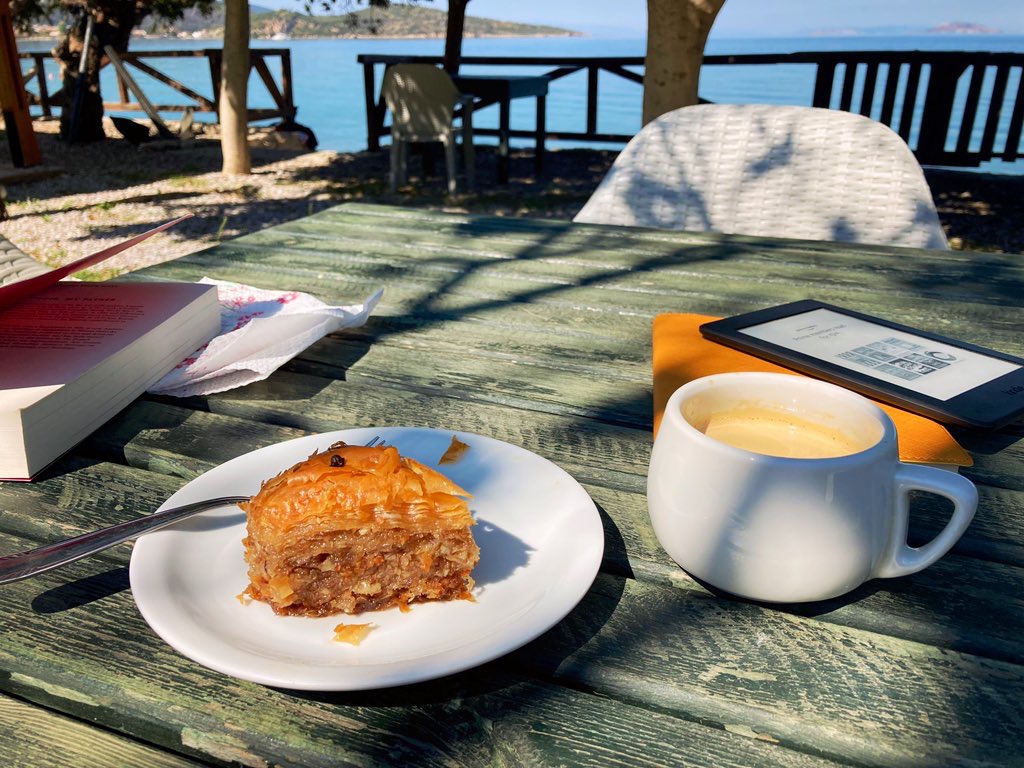
Hello readers. It’s been a while. Checking the date, my last post on this blog o’ mine was a year ago in June 2021. Much has changed since then. For one, I am no longer a freelancer. Yes I have a full-time job these days. Veteran readers of this blog will know that I started it in 2013 as a way to chronicle my time in Beijing as a freelance foreign correspondent. In 2018, I left Beijing, and I began to experiment properly with long-term travel and freelancing (digital nomadism, if you will). That came to an end in September 2020 owing to the pandemic.
Since I’ve been back in sunny England, I started writing a book again, which has kept me busy, then I got a full-time job in October last year. Perhaps I will write about this job at some point. But first I want to talk about a writer’s retreat I went on recently, the first ever writer’s retreat I attended.
If you are unsure what a writer’s retreat is exactly, it’s simply a place you go where the purpose is to engage with the activity of writing. Holidays exist where people go on a yoga retreat, or a cooking course in Italy, for example, or a meditation retreat, or a surfing school. A writer’s retreat is designed specifically for those looking to get away to focus on their writing.
Why did I go?
Late last year I received a chunk of money via the Developing Your Creative Practice grant from Arts Council England. As part of my application, I specified that I would use some of the money to go on a writer’s program or retreat. I looked some up. The most famous one in the UK are the creative writing programs and retreats run by the Arvon Foundation. Also as part of my application I specified that I would complete a certain amount of chapters for the book I am writing.
Eventually I decided to look abroad for my writer’s retreat. I hadn’t travelled overseas since I returned to England in September 2020, and I also wanted a more hands-off program, although I am still interested in those retreats where guided tuition is offered, I searched for something more open.
Just from Googling I happened to find a retreat that takes place in Greece, and one that turned out to be cheaper than a similar program at Arvon (excluding the transportation to get there).
Was it effective?
Since I started the fulltime job I’ve found I’ve had much less time to do my own writing. Beyond that, I’ve found my evenings and weekends overtaken by leisure.
When I was a freelancer, leisure and work-life wasn’t as clearly defined; actually they bled into each other. I found freelance life to be more task orientated. Once I finished tasks or a major task, I often would then do something leisurely, whether that was 12pm or 9pm, clocktime wasn’t as important.
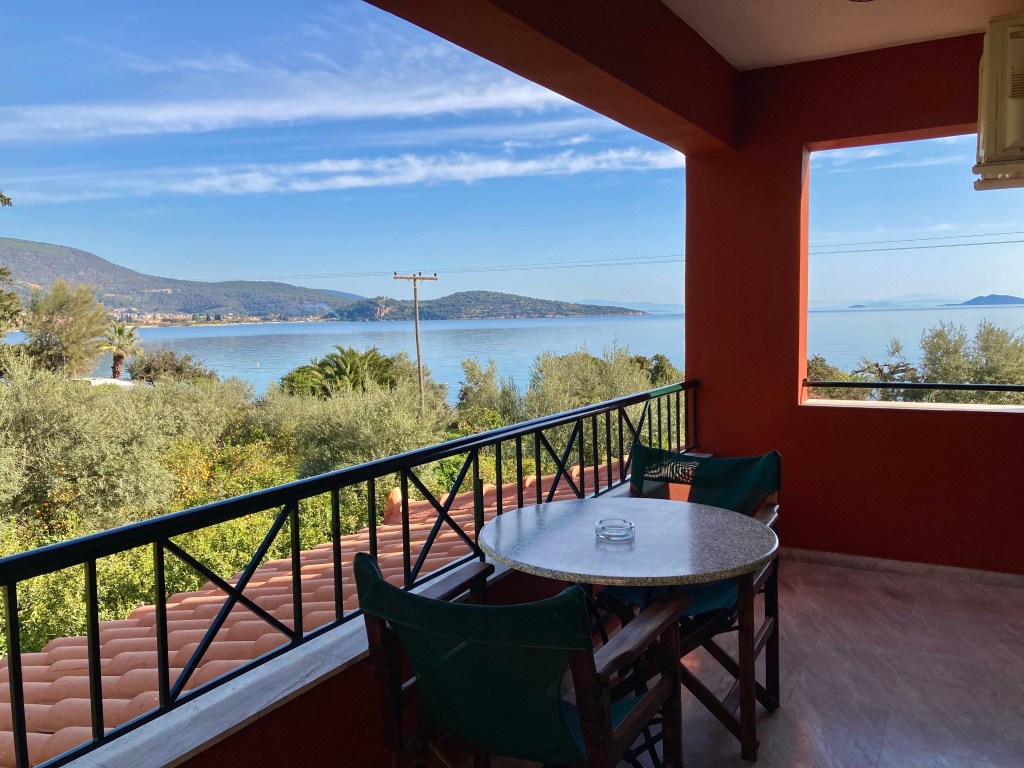
In my new incarnation as a fulltime staffer, I have to work eight-hour shifts. Once I finish a shift and clock off I find my mind shifts into leisure mode, and it can be tough to get it back into work mode in the evenings, even if that “work” comprises a passion of mine. It also doesn’t help that my day job also involves writing.
Be that as it may, through discipline, I was able to carve out an hour here or there in the evenings to get more writing done. Through diligence I was able to accumulate, with some regularity, hundreds and hundreds of words, always keeping in sight that putting down a couple hundreds words every day is nearly always more productive than trying to get thousands of words down in a single day. However, there were many evenings when this didn’t happen. I didn’t force myself, the bursts of writing happened in bursts: some weeks I wrote for successive days, while other weeks I wrote almost nothing.
However, I needed to edit, shape, and re-structure some of the chapters I had written. To tighten up and carve them into something better. This I found harder than even just getting the words down. It’s that old saying: I couldn’t see the forest for the trees. I needed a helicopter to take me above the trees so I could see the shape of the woods. So I decided that my helicopter would be a writing retreat.
Yes, it was effective.
What was the schedule?
Breakfast was a buffet of cheese, fruit, yogurt, eggs, bread, and that kind of thing. Lunch was a cooked meal. There was cake in the afternoon. Dinner was a sit down together kind of thing: more ceremonial, which was nice, and we’d converse about our day, among other things. I always looked forward to dinner and conversation.

Our meal times were announced by a bell, so that we writers would know it would be time to congregate for our food. Coffee and tea and snacks were provided. The retreat was located in sublime surrounds.
Other participants were a mix, although I was the only man there. There were people working on novels, and also those working on their PhDs. The retreat is designed for artists and writers and academics. I liked this variety.
My first days there were spent mostly lounging, and reading. I had to feel my way in. But the second day there I started to work a little more. We also went for walks and a little sight-seeing, which was organised by the retreat host, who was a kind and warm Dutch woman.
Would I go again?
Yes, and perhaps I would try their other location, which is set in rural Italy.
Being a writer is an often solitary experience. Ours is not really a very communal occupation, although I do regularly wish it were otherwise. But the idea of a writer’s retreat fulfilled me when I was there, especially as I was in such beautiful surrounds. It felt like a charmed existence.
Why would I go again? Because a writer’s retreat offers the spirit of community and the movement of travel animated by purpose; graced with the time and the space to think, read, and perhaps create. It does not even matter so much if you do not produce so much writing while you are on the retreat. Merely permitting yourself to go on one can be energising and gracious.
I would highly recommend to those who can afford it to consider going on a writer’s retreat at least once. The costs are worth it in my opinion.
This is the website of the organisation that runs the retreat I went on: https://artisagreece.org/
Part two of this will be more like a day-in-the-life type post, so stay tuned for that. Feel free to comment below, or email me, if you have questions.
Hear my voice

Hear My Voice is both a rousing song by British soul singer Celeste and now something you do can do by listening to a podcast.
Months ago I got an email from a couple of young guys asking me to be a guest on their podcast. The podcast is called The Open Door and it’s become a sophisticated and seriously good series of episodes with interesting and varied guests. The majority of guests are Britons of mixed or East Asian or Southeast Asian heritage. Highlights include conversations with Jun Kit Man, founder of Resonate, which went deep on mental health; Sophia Luu, a Cambridge graduate who won the Frances Wilmoth prize for highest marked thesis, opening up about being British Vietnamese; and, obviously, with me.
It’s a great thing Anthony and Patrick (the hosts) are doing and you can hear my voice as I chatted with them. In the episode we spoke about the time I went to North Korea as an undercover freelance journalist, the background, and setting behind that. And we talked about identity, what it means to be British Chinese, and my journey into journalism.
You can listen on Anchor FM
You can also follow them on Instagram @theopendooruk
Recent bylines
My journalism has really gone into backslide as I concentrate on other forms of writing, focusing on developing my creative writing, and book stuff.
But I wrote this in-depth feature for one of my favourite publications, Eurogamer. It’s on how videogames like Grand Theft Auto, Pokemon Go, and Animal Crossing were used by protestors in Hong Kong. It also features an intro where I talk about my friend and I eating Vietnamese pho in Wanchai.
I hope you give it a read!
How Animal Crossing became a place of protest in China and Hong Kong • Eurogamer.net
The fabled, non-existent, writer’s block, which I had recently
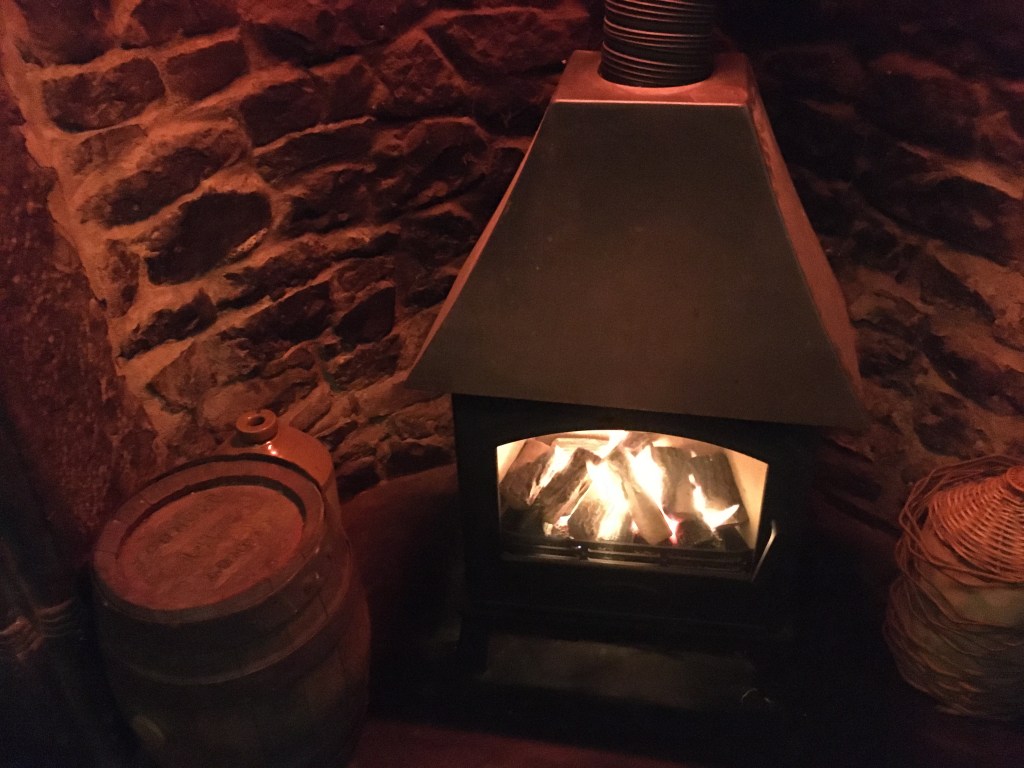
I don’t know if I mentioned it but I was recently on a programme designed to teach writers how to become published authors. It included masterclasses, guest speakers, tutorials, and, the pièce de résistance, the chance to submit a book proposal.
A nonfiction book proposal requires a synopsis of the proposed book; a chapter by chapter summary; and sample chapters (which amount to around 10,000 words).
I duly wrote a synopsis; and I worked up a contents list, with summaries of every chapter of my proposed book. Then, it came to write the sample chapters. Here, I discovered a problem. I found it extremely difficult to begin. This was, actually, quite unlike my experience.
Writer’s Block
It may be romanticised in Hollywood movies about writers, and the fabled imaginings of amateur writers, who may warmly picture a glamorous scenario where one has the privilege of being blocked, but, in my experience, most professional writers scoff at the idea of writer’s block.
However, however.
Lately, after writing several thousand words for a writing competition in November and December; plus writing a couple of short stories for a few other competitions in January; plus being involved with this publishing scheme in February and March (for which I am, of course, very grateful) which took a lot of concentration; plus digging deep to put together a decently written proposal.
PLUS the enervating, all-consuming, life-sucking, hope-sieving effects of lockdown and endless Coronavirus news, I felt my well had run dry.

Let’s talk about the well. In my experience, there is a well — a place in my subconscious which stores creative energy. And I have a pretty good sense of when this well is full, and when this well is dry.
Read the rest of this entry »Let’s talk about Rupert Murdoch

For those of us who are literate in the business of news and media the consensus might be that we know Rupert Murdoch all too well, and hearing his name brings about a shudder akin to hearing about an embarrassing skin disease. But I happen to think we don’t talk about him enough. That is, we should all talk about Rupert Murdoch more, dispelling the chilling atmosphere that surrounds this name, bringing it into the light, so that Rupert Murdoch is talked about sufficiently that we all start to wonder, in a cosmic, profound way, just how much influence this one Aussie bloke has had on our lives.
His story is amazing. Nobody can doubt the ambition, ruthlessness, and fortitude of what he has done. Inheriting his father’s business, the junior Murdoch was able to seize many newspapers in his native country to become a major player in the media business in Australia. He used this base to propel himself into the UK, where he would control the fates of important and opinion-setting newspapers like The Sun and The News of the World. From there, he launched himself into New York City and eventually built, with the aid of Roger Ailes, the Fox News empire, establishing his presence in the most powerful nation on the planet.
This one man, who has never formally entered the political arena as a voted-for politician, has been able to assert his influence and control over three major Anglo-powers. His dominion – and it is a dominion – spreads from one side of the Pacific to the other, and reaches across the Atlantic. This is not hyperbole. This one individual has exerted major influence over politics, media, and business in the English-speaking world for the past six decades. It is like a conspiracy that conspiracy theorists are too callow to dream up.
His instruments have been TV (Fox News), newspapers (The Sun), and the surrounding force of influence exerted by the more prestigious brands of The Wall Street Journal and The Times (of London). He has built profit machines in the form of BSkyB; Fox Entertainment Group; Dow Jones & Company, and many others that all go on to make up News Corp., which also owns one of the Big Five publishers (of books).
That this doesn’t go more remarked upon is perhaps for the simple reason that most of us can’t do much about it. He is like a far away figure, like Palpatine (The Emperor), or a dark lord hovering in the background, which we can’t do much to change, so we shy away from speaking about it. There is also fear. Pre-Leveson inquiry, he spread fear through the celebrity sphere, and political establishment. This was no joke. British politicians courted him. Tony Blair and Alastair Campbell expended considerable charm and effort into wooing the Australian. You can learn more from the excellent three-part documentary, available on BBC iPlayer, The Rise of the Murdoch Dynasty.
This is all to say that Rupert Murdoch held influence because people were, are, afraid of his influence. And rightly so. He torpedoed John Major and Gordon Brown’s electoral chances. His Fox News empire holds considerable influence over the American electorate. And in the British and US tabloids (New York Post; The Sun), he has ruined many a reputation. Even when I was writing this blog post, I thought for more than a few seconds, that he might bring his formidable resources to bear on this humble blog of mine, which is ridiculous. Yet that is how fear operates. Ask any brave “soldier” on the Internet in censorship-ruled China.
But we should try to understand, or at the very least, vocalise, how much Rupert Murdoch has held sway over our lives. Yet this is not, actually, an easy thing to do. (Just FYI, he will soon be marking, or just passed, his 90th birthday – and from reports it sounds like he’s not slowing down.)
Measuring the impact of Rupert Murdoch is like measuring the impact of bad weather – in many seasons, it’s just clearly bad. It is a form of tyranny, and for those us in Britain we are used to the monolithic, all-encompassing oppressiveness of bad weather. The difference being, weather eventually changes, but Rupert Murdoch stays the same.
Just because we know it is bad weather, and complain about it being so, can we change the dark clouds into something fairer, more open, and pluralistic? This is the eternal sunshine – the hope – of liberal democracies. Yet the cut and thrust of deal-making, and the clearsighted ambition of just one singular man (or woman), can taint the whole system. Liberal democracies are designed to clamp back the overwhelming, singular force of any one individual. And, yet, Rupert Murdoch has been able to tower, in shadow, over the democracies of three sovereign nations. This is, plainly, ridiculous. Yet it is the truth. How could this have been so?
The problem is freedom. In any free market, there will just naturally be some people who will rise to the top – whether using pre-existing freedoms (such as the freedom possessing more capital grants you) – or by being very smart, fortunate, and strategic. Someone like Jeff Bezos falls into the latter. And someone like Rupert Murdoch falls into the middle, granted the privilege of inheriting wealth, but also rising to his position by dint of being an excellent businessman.
Capitalism works in concert with democracies and creates strange collisions. It generates greed, corruption, and corrodes our selves and our societies. And yet we like what capitalism has done for us. (Or most of us do.) We benefit from the fruits of this system. But someone like Rupert Murdoch is also a product of this system. His vaunting ambition might seem a bit weird, a bit cringey, and downright creepy in that intimidating sense he’s going to stab us in the back like Macbeth, but we recognise it. Shakespeare knew his type and we know it now. The Romans and the Athenians knew it all too well – better than we do. I can’t say how far back it extends, but pre-literate societies probably understood it too. Oh, there’s that guy who tries to hoard all the apples! But it’s capitalism that has made the apple-hoarder into a transatlantic apple-hoarder who also sells us advertising making us want more apples. (This is clearly a metaphor extended too far.)
But I don’t want to be anti-capitalist (or too much) since I don’t see an alternative that is superior. But there needs to be more courage and more bravery to confront the power-hungry, and corrupted, personages of individuals like Rupert Murdoch. We can, and should, find our voice. Alex Beresford did it recently, beautifully. Akala has done it. In our democracies, where we are free to express ourselves, not talking about something is a form of cowardice. I just hope that those who wish things to be different put in the work to recognise things as they are – to be able to see things clearly and so they can name what is there right in front of them – and by doing so, change things with effort, grace, and resourcefulness.
My adventures in time-blocking (as a freelance writer)
I don’t know about you but I’ve felt fatigued and disconsolate as the boredom of lockdown, the repetitiveness of things, has dragged down my usually shiny, enduring sense of creative vigour. I just haven’t felt able or motivated to do things. Sleep has sometimes been deeply comforting, yet also fractious.
Wanting to get back on the game, to be once more motivated, I thought I’d try a productivity technique. It’s known as time blocking. I first heard of it, years ago, from the Deep Work and So Good They Can’t Ignore You author, and professional Email hater, Cal Newport. He is a computer science professor and a proponent of this practice.
Time blocking involves making the time to draw up a fairly well sketched out plan or schedule for the following day. And, instead of making a simple list of things you need to do, you set aside parts of the day for certain tasks — that is, you block out time especially for the important tasks that most achieve your long-term goals. This is supposed to help you commit to the focused, concentrated, uninterrupted blocks of time to make progress on these goals — rather than having those sundry, seemingly urgent, but ultimately arbitrary tasks take up all your energy. A diagram will probably explain things better.

On a Sunday, I drew up this flow chart (above), describing what I’d do the next day, with my time carefully allocated. You might notice that there are long breaks but with time-blocking the underlying principle is that you spend the work-blocks focused on what Cal Newport describes as deep work (writing a chapter of a novel, for example, or making real progress on a graphic design commission, say).
It felt comforting knowing that I wouldn’t need to expend unnecessary energy having to think “now what do I need to do?” once certain tasks were completed. I only needed to follow the plan, like a happy automaton. After all, there can be freedom and contentment in following instructions, as anyone who’s played with Lego will know.
Let us cast aside the ridiculous notion that creativity is best kindled in an unstructured burst of spontaneous genius. It just doesn’t work like that, for most people. But discipline, putting the work in, and following certain procedures, rituals, programmes, can be enormously fertile and productive. Freeing.

So Monday started. And, of course, my lovingly crafted schedule was immediately blown apart by a chance connection with some copywriting work coming from China. The connection was simply too rich a possibility to cast aside, so of course I followed up on it. But no matter, I simply adjusted myself. And for the rest of the day, it did feel liberating to just follow the plan. To look down at the plan and know, quickly, certainly, what I needed to be doing next. I was not able to get to all my tasks – something which I did not beat myself over – and I added annotations to each time-block, noting what I did instead, what I had still to do, and what I achieved outside of the confines of the schedule.
Tuesday, and I just carried on with the unfinished tasks from the previous day and I neglected to make a flow chart, to time block. I worried.
Wednesday – I had a phone call with a news assistant based in Shanghai. Then, later on, I had an existential crisis. Again, I failed to make a time-blocked plan. I wondered about the need to constantly work – to be productive. I looked at all the advertisements crowding my social media, the webpages I visit, and re-embraced my deep suspicion of capitalism.
Do I really want those things? Should I work myself to the ground in order to afford these items which are so adamant about me wanting to desire to possess them? But what about my ambitions, my goals? HMMMMM.

Thursday was better. I cannot put my finger on exactly what it was, but it may have to do with the fact I was on a rather celebratory Zoom call, with heartfelt emotion connecting me with a host of humans, and it was a beloved feeling, far from the madding crowd of capitalistic greed. I also went for a jog, listening to Daft Punk (rip), feeling Alive and Discovered.
Friday, I did some work early on, then I cooked Moroccan lamb for my family, with apricots and cumin and the warming colours of North Africa displacing the gloom of British weather.
So, yeah, that was my rather unsuccessful experiment with time blocking. If you want more of my advice, I can send you a postcard.

Learning from Kazuo Ishiguro
Recently, I was fascinated to learn Kazuo Ishiguro’s writing process. He is a British novelist of Japanese heritage. He was awarded the Nobel Prize in Literature in December 2017 and is widely regarded as a master of his craft. His books include the fabulist, sci-fi British-boarding-school drama Never Let Me Go; and the yearning, melancholic butler of The Remains of the Day. These have also been adapted into movies starring Carey Mulligan and Anthony Hopkins, respectively.
I read this in-depth profile of Ishiguro in the New York Times. It is a detailed, moving, and very long piece: the audio recording of the article runs to 48 minutes. It contained many treasures. Not least a description of the writer’s approach.
“He is a planner, patient and meticulous”, Giles Harvey, the profiler, writes of his subject.
Ishiguro spends years thinking, and jotting down notes, for his books; basically talking to himself; conversating about where the book might go and what it might do.
He will then draw up “detailed blueprints for the entire novel” and only then will he actually begin writing. He will produce maps of his rough drafts, numbering the different sections, and make flow charts describing the progress of these draft chapters.
This process sounds very much like that of a crafter; someone who cares meticulously about the path his chapters take, and therefore wants to know exactly the bumps in the road of his entire story.
It was also interesting to note that this master-writer does not overly care about writing. He has written many fewer books than his contemporaries such as Salman Rushdie, Martin Amis, and Ian McEwan. From other profiles I have read I know that Ishiguro is a cinephile and often watches movies at home. He is also a musician and music was his first passion. He spent his formative years listening to singer-songwriters rather than making his way through the literary canon.
I do wonder whether this slight coldness to writing; the fact that it does not possess him in the same way it obviously possesses someone like Martin Amis actually explains his greater greatness. Perhaps this distance-ness gives him an advantage.
I think there might be something in that.
Another takeaway is the patience and many-years-long germination process Ishiguro undertakes. And the meticulous thinking he does. I am certain that this slow understanding can make a better project. The map-like visual process he uses, and the different procedures he has (writing a quick draft in longhand without stopping, before doing a more laborious second draft; before finally typing it up), would surely help too. All these processes have enabled this man to make his work. But it does not mean I will use the same ones. Different strokes/different folks, etc.
Use whatever works for you, or, rather, whatever works better for you.
